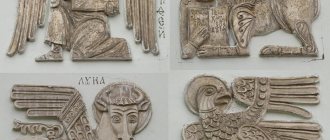This article is about a chapter of the Bible. For Pope John 15 cm. Pope John XV.
| John 15 | |
| ← Chapter 14 Chapter 16 → | |
| John 15:25-16:2 on front side side Papyrus 22, written around 250 | |
| Book | Gospel of John |
| Category | Gospel |
| Christian part of the Bible | New Testament |
| Order in the Christian part | 4 |
John 15
is the fifteenth chapter of the Gospel of John in the New Testament section of the Christian Bible. This is part of what New Testament scholars call Jesus' farewell speech. Historically it has been a source of Christian teaching and Christological debate and reflection, and its images (especially of Jesus as the vine) have influenced Christian art and iconography. This chapter deals with one of the highest and most developed Christologies of the New Testament. The original text is written in Koine Greek. The book containing this chapter is anonymous, but early Christian tradition has consistently held that John composed this Gospel.[1]
Places
The events and conversations recorded in this chapter and throughout chapters 13 through 17 took place in Jerusalem. The exact location is not specified, but John 18:1 states that afterwards "Jesus went away with his disciples and crossed the Kidron Valley." Since the previous chapter ends with the words “Come, let us go,” [5] Plummer, in The Cambridge Bible for Schools and Colleges, suggests that Jesus and His disciples should “rise[n] from the table and prepare[d] to go, but that the content the next three chapters (15-17) will be read before they leave the room."[6]
Rules for reading the gospel and tips for combating alcoholism
In order for the gospel to work and provide quality treatment for alcohol addiction, a drinking person should follow some tips and rules, which include:
- You should read the prayer and this sacred ritual yourself if the drunkard has definitely decided to treat alcohol addiction. If an alcoholic does not want to fight his addiction, there is no point in resorting to this ritual.
- If a loved one of a drunkard decides to help him get rid of his addiction, the patient should be taught that his “hobby” is negatively affecting his loved ones. It is also necessary to explain that a person who abuses alcohol looks very low in the eyes of other people.
- It is important to speak the gospel in a calm tone without raising your voice. If the alcoholic himself reads it, he should mention that he is no longer afraid of the green serpent and is ready to fight him. If the ritual is performed by the relatives of a drunkard, the saint should be informed that upon completion of the fight against alcoholism, he undertakes to no longer encounter evil spirits that significantly undermine his health.
- You cannot put off reading the prayer until later - it is permissible to say the gospel several times a day (it is especially important to carry out this ritual in the morning).
- When pursuing healing through prayer and the gospel, it is important to constantly monitor yourself. It may take months or even years to fight alcoholism, but then the person will experience a long absence of relapses. And if a cured drunkard makes a sacred speech every day, alcoholism will no longer overtake him.
- When performing such a ritual, it is forbidden to drink alcohol, since the saints will see that the person is not going to fight addiction. If the prayer is read by a loved one, he must say that the alcoholic is trying to fight addiction. At the same time, it is important to ask the drunkard every day to stop drinking strong drinks - over time, he will think about the words spoken to him and will become more “calm” about alcohol.
- If the drunkard still breaks down, the treatment should still be interrupted - in this case, you need to ask the saint for help, and also apologize for your irresistible desire to drink strong drinks.
Compliance with all the rules of treatment according to church laws will allow you to defeat alcoholism, even if such “therapy” takes more than a month. You can get acquainted with the Gospel of John in the church, where Father will tell you about the correct reading of the sacred ritual.
(Visited 2,622 times, 1 visits today)
Analysis
The chapter presents Jesus speaking in the first person. Although ostensibly speaking to his disciples, most scholars conclude that this chapter was written with events relating to the later church in mind. Jesus is presented as explaining the relationship between himself and his followers, seeking to model that relationship on his own relationship with his Father.
The Shrine of Remembrance in Melbourne, Australia, is typical of the thousands of war memorials that use the words of John 15:13, “greater love has no one,” to pay tribute to the fallen.
The chapter presents an extended metaphor of Christ as a real vine. The father is a vinedresser, vinedresser, or husbandman.[7] His disciples are called branches (Greek: τα κληματα, ta klémata
, in particular, means
branches
) [8] which must “abide” in it if they are to “bear fruit.” The disciples are warned that the vinedresser prunes the unfruitful branches: see John 15:2: Every fruitful branch is pruned so that it may bear more fruit rather than unfruitful ones.
This chapter compares the intimate relationship between Jesus and his disciples (“abiding,” verses 9-10) with the relationship between him and his Father. The disciples are reminded of the love of the Father and the Son and the love of the Son for the disciples, and then encouraged to “love one another” in the same way. Verse 13 speaks of “greater love” as the willingness to “lay down” one’s life for friends. This text, which primarily refers to the impending death of Jesus, has since been widely used to affirm the sacrifices of martyrs and soldiers in war, and is therefore often seen on war memorials and graves.
Jesus then says that the world hates him (verses 18-25), but He sees this hatred as a fulfillment of the words in either Psalm 69, “They hated Me without cause,” [9] or Psalm 36, “and not let them blink their eyes that hate me without reason.”[10]
The chapter ends with a warning to the disciples to expect persecution and the promise of the gift of the paraclete
(paraclete or Holy Spirit).
15:1,2I am the true vine, and My Father is the vinedresser. 2 Every branch of Me that does not bear fruit He cuts off; and every one that bears fruit, he cleanses it, so that it may bear more fruit. The branch on the vine (disciples of Christ on Christ’s foundation), which bears fruit (beneficial to the fulfillment of God’s intention), is needed by the Owner—the Vinedresser. Even if something extra, dried out or withered (dead) is found on a fruit-bearing branch, the Owner will definitely take care in due time to cleanse all its defects so that the branch can revive and bear even greater fruit in His work. Fruit is both internal Christian qualities, and the growth of congregations of those who believe from the gospel, and standing in the trials of faith.
The owner does not need a branch that does not bear fruit, even if it looks very juicy and beautiful (it is called a Christian and succeeds in its own well-being), he will cut it off so that it does not interfere with the fruit-bearing branches feeding from the root.
15
:
3 You have already been cleansed through the word that I preached to you. The Word of God is the “instrument” with which God cleanses the “branches of the vine” - those bearing fruit to Him - from all the “withered and withered” dead things (helps to free oneself from the power of sin over a Christian)
15:4
Abide in Me, and I in you. Just as a branch cannot bear fruit by itself unless it is in the vine, so neither can you unless you are in Me. Disciples of Christ should not separate from Christ or look for another root for spiritual nourishment: a branch cannot bear fruit outside the root of the vine, and fruits from another nourishment (not Christ’s) can be fatal. Disciples of Christ must anchor their lives in the word of God and draw their spiritual resources only from the root of God's "vine": Jesus Christ. This means that they must always be with Christ in unity of thinking, views on a righteous lifestyle and the path to the Father.
15:5 I am the vine, and you are the branches; He who abides in Me, and I in him, bears much fruit; for without Me you cannot do anything. Those Christians who care about whether they will “bear fruit” in the spiritual field, in God’s work and the inner qualities of a Christian strive to remain in unity with Christ or not. They understand that fruitfulness in the spiritual is not from A Christian’s own strength depends not on his convincing speeches, but on the help of God and the action of the Holy Spirit. God will begin to provide help only to those who have accepted salvation for themselves through Christ, who without him do not try to justify themselves before God by their own merits, and who draw their life and spiritual resources in imitation of Christ.
15:
6 Whoever does not abide in Me will be cast out like a branch and wither;
and such [branches] are collected and thrown into the fire, and they burn . But even the branches
that are on the vine are in danger of being torn away from the vine, drying up and becoming useless for the Owner, as a result of being cut off and destroyed .
Whoever begins to invent his own path to God, independent of Christ, will inevitably cease to be supplied with the “juices” of the root of the “vine” of Christ, will lose God’s blessings and ultimately.
15:7
If you remain in Me and My words remain in you, ask whatever you wish, and it will be done for you
. If a Christian does not deviate from the instructions of Christ, does not get carried away by the freedom of his own speech and goes to God exactly in the footsteps of Christ, such a Christian will be provided with help from above and blessings in the work of the Lord by Christ.
15:8 By this will My Father be glorified, if you bear much fruit and become My disciples
.
The task of a Christian is to work to become righteous, to succeed in the work of the Lord, in the gospel of the word of God, multiplying the disciples of Christ and winning them to God through their acceptance of the atonement of Christ. Jesus Christ came to glorify his Father. And Christians should care about the glory of their heavenly Father. To glorify the Father with good deeds or to disgrace Him with our bad deeds is the choice of every Christian. 15:9 As the Father has loved me, and I have loved you;
abide in My love. Jesus Christ in fact showed the qualitative side of the love of the Father and himself for Christians: the willingness to make enormous personal sacrifices for the sake of love and for the good of those whom they love - this is what it means to abide in the love of Christ and God. The entire wicked world always seeks its own (personal gain and self-interest) in everything and always. A Christian must learn to do what pleases Christ and God, even if fulfilling the will of God in this century will not bring him any personal benefit. And even if fulfilling God’s will will bring him great trouble in some way.
15:10 If you keep My commandments, you will abide in My love, just as I have kept My Father’s commandments and abide in His love.
What exactly the will of God is - Jesus conveyed in detail through the commandments of his Father. Keeping the Father’s commandments and the desire to fulfill His will, and not one’s own, is what a Christian’s love for God consists of.
One can do many good deeds and donate large sums of money to God’s cause, but if at the same time one fulfills God’s commandments only selectively or only when it is not very difficult, then one cannot say that one who does so abides in the love of Christ.
The point of view that violation of some of God's commandments can be overcome by the number of good deeds and donations, common among many Christians, does not correspond to God's.
15:11,12
These things I have spoken to you, that My joy may be in you, and that your joy may be complete.
12 This is My commandment, that you love one another, as I have loved you .
Jesus emphasizes that being on the “vine” (in Christ) for them means being in the word of God, in loving God and one another, and keeping His commandments without trying to make up your own. your joy will be complete;
the joy that Christ himself experiences from fulfilling the will of his Father - the disciples will be able to feel in its entirety only under one condition: if, in fulfilling the will of God, they imitate Christ in everything.
15:13,14
Greater love has no one than this, that a man lay down his life for his friends.
14 You are My friends if you do what I command you. Christ has a special attitude towards friendship: he cannot be a friend to those who do not fulfill the commandments of his Father, transmitted to him on earth.
And those who do not want to fulfill the commandments of God will not be able to become his friends. As we see, a Christian cannot afford to be friends with everyone and indiscriminately, if he imitates Christ in choosing friends. However, if someone has become a friend of Christ, fulfilling the commandments of God, Jesus will not regret giving his life for his friend if it is needed for his salvation. This is the highest manifestation of love: to sacrifice oneself for the salvation and well-being of a friend: there is no greater love than if someone lays down his life for his friends.
(this text does not say that since Jesus did not regret giving up his whole life for his friends (shed all his blood), then Christians, if necessary, should sacrifice 200-400 ml of their blood to support the lives of their neighbors. For more details, see . Here
This text also shows that self-sacrifice is the highest expression of love. A little about self-sacrifice: Some Christians propagate the idea that this verse justifies Christians participating in wars to save lives from invaders. However, as we noted, here we are talking about salvation at the cost of one’s own life. Not at the cost of killing others.
SAVING others - at the cost of OWN life - is right. Like Jesus, for example, SAVED EVERYONE at the cost of his own life. For example, someone saved a drowning man (carried him out of a fire, from under the wheels of a car, etc.), but he himself died. This is an option of self-sacrifice. And if this someone kills someone else during the rescue, this option is not SELF-sacrifice, it is murder. Here he, although a hero in the eyes of other people and in the eyes of the one he saved, but for the sake of salvation he sacrificed not his own, but ANOTHER’S life. This option is not according to Christ.
What does self-sacrifice mean for a Christian today for the salvation of people? God wants all people to be saved through the knowledge of His truth about salvation through the atonement of Christ - 1 Timothy 4. (and not due to military actions). Christians are advised to present themselves (their lives) as a sacrifice for REASONABLE service to God (Rom. 12:1): that is, to spend their strength, their time and their health in the interests of God - for the spread of the life-saving truth of God, and not for themselves personally . And if a Christian suffers for the gospel (like a Christian - 1 Peter 4:15,16), then in this he will become like Christ, the apostles and everyone who was ready to risk their lives for the sake of observing God’s interests in saving people.
An example of self-sacrifice according to Christ is Stephen, who sacrificed HIS life in order to convey to people the hope of salvation.
15:15
longer call you servants, for the servant does not know what his master is doing;
but I have called you friends, because I have told you everything that I have heard from My Father. It is a great honor to be a servant of Christ, exactly and unquestioningly fulfilling the will of his Father without question. However, to be a friend of Christ is a higher honor: the master does not tell the slave about his intentions. Friends are initiated into many secrets of Divine Providence. Jesus, having revealed the intentions of his Father to his disciples, showed that now there is a very close and trusting relationship between them, based on friendly love, and not on slavish submission. We can say that a friend is an intermediate spiritual level of closeness to God between the state of a slave and a son.
15:16
, and that your fruit should remain, so that whatever you ask of the Father in My name, He may give it to you
. How sad this is for some , but election occurs from above, and no one can prevent this, as well as seek this - for themselves or for others.
A very important point is that YOU did NOT choose me, but I chose YOU
. The principle “he who pays the piper calls the tune.” It does not happen that they paid for a song of praise to God, and the musicians played “ode to man” and the buyer was satisfied. Jesus redeems the disciples, and he “orders” them exactly the “song” that the redeemed are obliged to “sing.” And his song of praise to God is that the redeemed should follow in his footsteps and bear the fruit of Christian activity on earth.
15:17
This
I command you, that you love one another.
Love and respect for each other are the basis for the stability of the Christian congregation and the strength of relationships between Christians, which cannot be expected in a society where there is hatred, envy, rivalry, etc.
15:18,19
If the world hates you, know that it hated Me before you.
19 If you were of the world, the world would love its own; and since you are not of the world, but I chose you out of the world, therefore the world hates you . Christ stood out very clearly against the background of any society in which he appeared. Society never likes those who do not want to keep up with everyone else. Therefore they hated Christ. And there is no hope that the world will love Christians for their Godly way of life. And if the world loves one of the Christians, it is a sure sign that this “Christian” has become one of the world’s people and acts in exactly the same way as the whole world, alienated from the life of God, acts. And whoever is at home with the world is a stranger to God and His Christ.
15:20
Remember the word that I said to you
: a servant is not greater than his master.
If they persecuted Me, they will persecute you too; If they have kept my word, they will also keep yours. A Christian should not self-confidently think that the whole world will accept the sound Biblical teaching about God, which he will spread throughout the earth with joy. Just as they received it from Christ, in the same way they will receive it from the lips of his disciples: the generation that persecuted Christ will also persecute his followers. And the race that has accepted the word of God will also accept it from the lips of Christ’s disciples.
15:21
But they will do all these things to you for my name's sake, because they do not know him who sent me
. The race of those who persecute Christ will certainly persecute the faithful followers of Christ because of ignorance of the Father of Christ and His intentions.
15:22,23
If I had not come and spoken to them, they would not have had sin;
but now they have no excuse for their sin . Christ speaks about his persecutors, about the race of religious leaders of God’s people who do not agree with Christ’s revelations of hypocrisy and lack of love for God and His people.
23 He who hates Me also hates my Father.
Anyone who persecutes the faithful followers of Christ will show that they hate God, whose commandments have become the cause of hatred towards Christians. (unless, of course, a Christian is hated for spreading the word of God and a righteous lifestyle, and not for his own bad character, for example, or unrighteous deeds)
15:24,25
If I had not done among them works that no one else had done, they would not have had sin;
but now they have seen and hated both Me and My Father. A very significant clarification: for good deeds, for the deeds of the Father, and not for bad deeds, the world hated Jesus Christ and will hate his faithful followers at all times.
But let the word that is written in their law be fulfilled: They have hated Me without cause.
Ps.34:19 indirectly predicts the fate of the Messiah, which was fulfilled on him. And although the words of God are recorded in the Psalm, speaking about “their law,” that is, the religious leaders, Jesus says that the very law with which they hide behind exposes their wrongfulness, the leaders simply do not want to hear about it.
15:26
When the Comforter comes, whom I will send to you from the Father, the Spirit of truth, which proceeds from the Father, He will testify of Me
; Jesus predicts the appearance of Pentecost and the help of the holy spirit to Christians in comprehending the meaning of the word of God, His truth. It is the holy spirit that helps Christ’s to correctly understand God’s intentions and explain many prophecies -2 Peter 1:20,21
15:27
And you also will testify, because you were with Me from the beginning
. The Holy Spirit will help Christ's disciples testify to God's truth about the nature of Jesus Christ's messiahship and his life many years after Jesus ascended into heaven. It was the help of the holy spirit sent by Jesus Christ from the Father that played a significant role in the appearance of the books of the New Testament.
Recommendations
- Holman's Illustrated Bible Guide. Holman Bible Publishing, Nashville, Tennessee. 2012
- Eberhard Nestlé, Erwin Nestlé, Barbara Aland and Kurt Aland (eds.), Novum Testamentum Graece
, 26th edition, (Stuttgart:
Deutsche Bibelgesellschaft
, 1991), p. 689. - Kirkpatrick 1901, para. 838.
- Kirkpatrick 1901, para. 839.
- Jerusalem Bible, John 14:31
- Plummer, A. (1902), Cambridge School and College Bible 14 John, accessed 5 July 2016.
- BibleGateway.com, English translation of John 15:1
- Strong's Greek Correspondence, 2814: klima, accessed June 2, 2022.
- Psalm 69:4
- Psalm 35:19
- John 15:16: New King James Version
- Quoted in Bengel, J. A., New Testament Gnomon of John 15, accessed November 27, 2022.
- John 15:26






